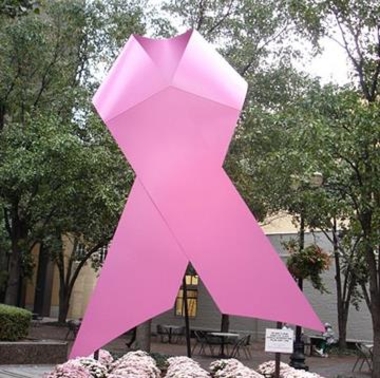HIV? AIDS? WTF? Ladies, when was your last annual physical?

Men who have sex with other men are faced with certain health risks. I know this, you know this, and even the men who live in denial know this.
Among those men, young men of color are disproportionately represented among HIV+ statistics. What people often don’t know, however, is that women who have sex with other women also face health risks. Women’s health is often a topic that is overlooked, dismissed, or minimized as being less important than men’s health within the general population.
When we talk about the LGBTQ community specifically, lesbian women are almost invisible. It is true that women tend to be healthier than men and we live longer than they do. That is largely because we have our monthly friend who keeps us aware of our bodies and the cycles they go through every few weeks. We go to the doctor more often and are more willing to seek help if we need it. We are also the ones who have the babies, if babies are going to be had.
However, not all women choose to have babies, and some women are just not that in tune with whatever is happening with their bodies every month. I visited the Centers for Disease Control (CDC) website to learn more about what kind of health risks lesbians face if they aren’t having sex with men (guys, you know y’all bring stuff home to us sometimes) and they aren’t stressing their bodies with pregnancy and childbirth.
It turns out that there is a medical organization devoted specifically to the health issues facing lesbians. The GLMA (www.glma.org) is an advocacy group that helps lesbians understand the risk factors they may face, and it provides resources including a health providers listing.
According to the GLMA, lesbian women are at a higher risk for developing breast cancer. Yet, because women who have sex only with other women tend to view themselves less at risk for diseases like this, they don’t get screened as often, so early detection is less likely. This can obviously have fatal consequences.
Constantly battling discrimination, bullying, stereotypes, and inequality can take a toll on anyone. For lesbians, these battles increase the risk of depression and anxiety disorders. Bisexual women with children may have to struggle to protect themselves and their children. All that stress can lead to increased use of tobacco and alcohol products and other substances. These substances can harm your health themselves, but they also contribute to unhealthy lifestyles that may lead to inactivity and obesity.
Yes, anyone can be at risk for these things, but lesbian women may be at greater risk and have fewer places to seek help. Ladies, when was the last time you went in for that annual “put your feet in the stirrups and pretend you’re on the beach while someone probes around in your lady parts,” also known as a pelvic exam? If it’s been a while, you’re putting yourself at great risk of gynecological cancers. As uncomfortable as they are, those annual exams are crucial for detecting cancers early. Since you don’t go in as often as straight women—perhaps not at all-- your risk of developing and dying from one of these cancers is much higher than for straight women.
While on the topic of those private parts, did you realize that you can give and receive STI’s? A popular, but deadly, myth is that icky things like viruses and bacteria prefer to ride to their destinations in the comfort of big, strong penises. The truth is that they just like to travel around. Follow the same advice given to straights and gay men: use protection always; get tested often.
Lastly, educate yourself about domestic violence and be prepared to seek help if you need to. The same fears and stigmas that may keep you from seeking medical attention may also interfere with your trusting the police or seeking help at shelters. Male-on-female violence is not the only kind that exists. If your partner pushes you, hits you, threatens you, belittles you, or in any way makes you afraid, get help. Broken hearts heal faster than broken bones, and living alone for a while beats the hell out of dying.
March is the month when spring awakens and things have new beginnings. Give yourself the best new beginning. Give yourself good health.
by Mary Turner, Gayly Columnist
The Gayly – March 27, 2014 @ 2pm





